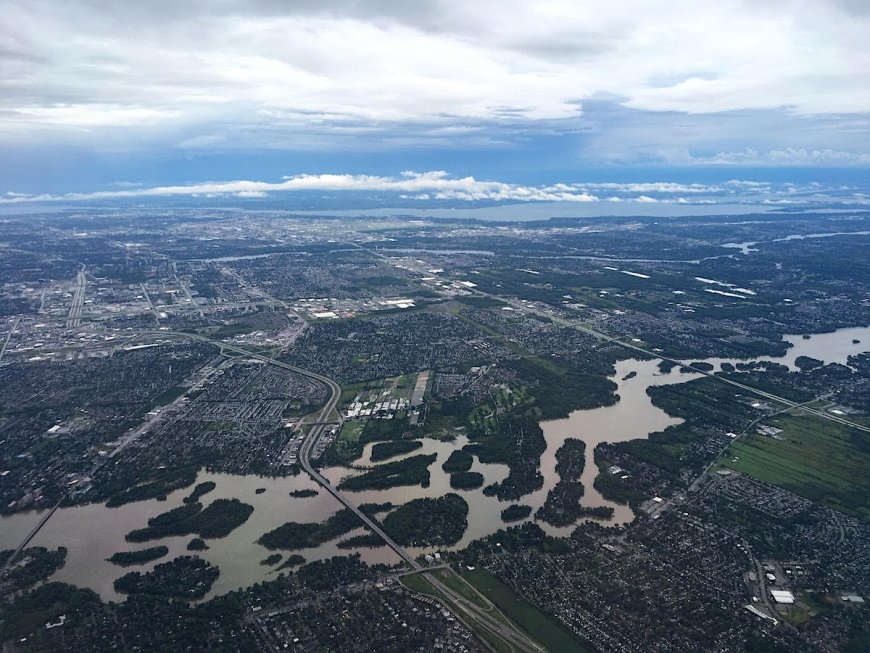Safeguarding Natural Areas Can Protect Cities From Flooding, Canadian Study Finds
All over the world, floods have been increasing in frequency and intensity due to climate change. A new study led by researchers at University of British Columbia (UBC) shows that protecting key ecosystems across Canada could reduce the risk of flooding in over half of urban areas in the country that are at high risk. […] The post Safeguarding Natural Areas Can Protect Cities From Flooding, Canadian Study Finds appeared first on EcoWatch.

All over the world, floods have been increasing in frequency and intensity due to climate change.
A new study led by researchers at University of British Columbia (UBC) shows that protecting key ecosystems across Canada could reduce the risk of flooding in over half of urban areas in the country that are at high risk.
The study presents a global roadmap for the integration of nature-based solutions into flood management and urban planning, a press release from UBC said.
“This is the first national study to assess the role of Canadian ecosystems in flood prevention and to identify where conservation could have the greatest impact,” said Dr. Matthew Mitchell, an assistant professor of forestry and land and food systems at UBC, in the press release.
The research demonstrates that protecting the most essential five percent of watersheds, which equates to roughly two percent of Canada’s total land — 201,000 square kilometers — can greatly reduce the amount of rainwater runoff, protect croplands and safeguard homes and livelihoods.
Upstream watersheds near cities like Toronto and Vancouver play a major role in the protection of 3.7 million people who live in floodplains, as well as another 20.1 million residents nearby — over half the country’s population.
The research team used global data to analyze how land types such as wetlands, forests and riparian zones reduce runoff and absorb water.
These natural systems improve water quality, support wildlife and prevent downstream flooding, while lowering the reliance on dams and other destructive and costly infrastructure.
“Nature-based solutions are highly effective for managing flood risks, and this study shows exactly where conservation can make the biggest impact,” Mitchell said in the press release.
The researchers identified British Columbia (BC) ecosystems that are vital for flood prevention, including alpine and subalpine ecosystems that help prevent downstream flooding and regulate water flow in the Columbia and Coast Mountains; wetlands and forests in the Similkameen and Okanagan Valleys, which safeguard important agricultural areas and expanding population centers; and Fraser River Delta wetlands — including peatlands like Burns Bog — which are essential for Lower Mainland flood protection.

Highway 99 adjacent to Burns Bog. B.C. Ministry of Transportation and Infrastructure
Outside of BC, in the prairie provinces of Manitoba, Alberta and Saskatchewan, the research team recommended the protection of grasslands and wetlands in important river watersheds like the Saskatchewan and Red Rivers.
In the Northern Regions, they suggested prioritizing the conservation of wetlands and ecosystems in areas such as the Northwest and Yukon Territories.
In Southern Ontario, the team recommended safeguarding Great Lakes wetlands and major rivers in cities like Ottawa, Hamilton and Toronto to reduce flood risks.
Canada has promised to protect 30 percent of its lands by 2030, but just eight percent of the country’s ecosystems that are most crucial for flood protection are currently being preserved. The research team called for more funding and stronger conservation policies to make these high-impact areas a priority.
“This research makes it clear that conserving nature isn’t just about biodiversity—it’s also about protecting communities and making cities more resilient to climate change,” Mitchell said.
The study, “Flood prevention benefits provided by Canadian natural ecosystems,” was published in the journal Ecosystem Services.
The post Safeguarding Natural Areas Can Protect Cities From Flooding, Canadian Study Finds appeared first on EcoWatch.
What's Your Reaction?








































